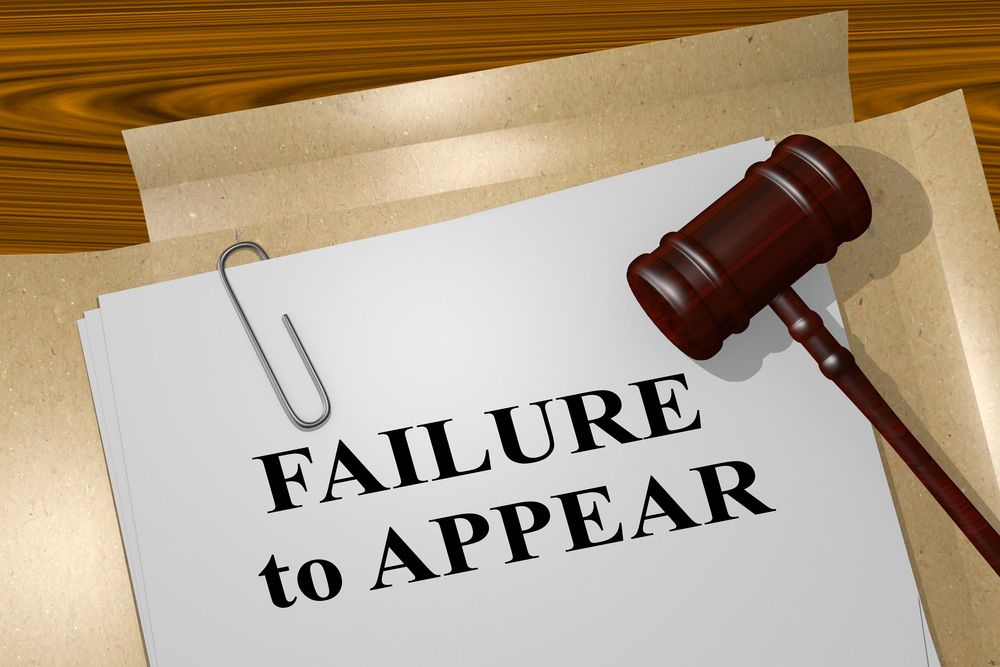You can be charged with failure to appear (FTA) in Texas if you don’t show up for your court hearing, which can happen for a several different reasons. You can forget or not even realize when it was scheduled. But, no matter what the reason is for not showing up, failing to appear in court can lead to serious consequences. The judge will most likely issue a warrant for your arrest, so you could be taken into custody or even spend time in jail. If you’re found guilty of the charges that have been filed against you, the judge may give you a harsher sentence because you didn’t show up in court.

Failure to appear in Texas is taken very seriously, so you should always show up when you’re supposed to. If you can’t make it, you should call the court ahead of time to let them know. Otherwise, it could affect how your main case will turn out. Some of the consequences for not appearing in court in the State of Texas can include, but may not be limited to:
- Time in jail.
- Increased fines.
- Community service.
- Probation.
If you have a valid excuse or if the court has already ruled in your favor, you could fail to appear legally. But in most cases, it won’t be an option. That’s why you need to remember your court hearing date and to show up on time. If you’re not able to attend, let the court know as soon as possible. You might be able to reschedule or have your case heard in absentia.
Valid Reasons for Not Appearing in Court
Some valid reasons for not appearing in court can include:
- You have a valid excuse (such as an illness or family emergency).
- The court has already ruled in your favor.
- You’re in jail or prison.
- You have been served with the notice of hearing, but you can’t attend for religious reasons.
- You have been served with the notice of hearing, but you live out of state and aren’t able to attend.
Be sure to speak to a qualified attorney for more information.
What to Do if You Don’t Appear in Court
If you don’t appear in court, the best thing you can do is go to the courtroom as soon as possible. This will show them that you’re taking responsibility for your actions and are willing to work with the court. You also need to be prepared to explain why you failed to appear and to provide any supporting documentation for your excuse. If you missed the hearing because you were in the hospital, you need to bring a copy of your discharge papers. If you have a warrant for your arrest, make sure you contact an attorney as soon as possible. This person would be able to help you to turn yourself in and might even be able to get the warrant rescinded.
Penalties for Failure to Appear in Texas
The judge will try to determine if there were any “extenuating circumstances” that kept you from appearing in court, and some situations are looked upon more favorably than others. A court may be more lenient if you have recently been hospitalized, but the same may not be true if you weren’t able to find childcare or have a conflicting work schedule.
If the court believes you were irresponsible, it will decide on a penalty for your failure to appear, which will most likely be related to the nature and severity of your original charges. Some of them can include:
- A Class C misdemeanor for offenses that will only result in a fine. Minor traffic offenses normally fall into this category. In these cases, the penalty would be a $500 fine.
- A Class A misdemeanor if the original arrest was also a misdemeanor. This can lead to a fine of up to $1,000 and up to one year in jail.
- A third-degree felony if you were originally arrested for a felony charge (such as DWI or burglary). This can lead to a prison sentence of up to 10 years and a fine of up to $10,000.
These penalties are in addition to what you may be charged with for the original arrest. Courts don’t look favorably on people who aren’t able to live up to their agreements and violating public trust could lead to a much harsher sentence on your initial charges.
Criminal cases are always serious, and it can be more complicated if you don’t appear in court. That’s why you need to seek the advice of a qualified attorney. If you’re looking for a criminal defense attorney in Corpus Christi to help you with your case, be sure to get in touch with Gale Law Group.
